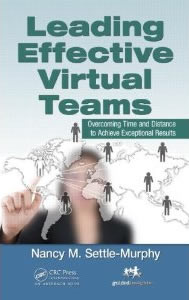Like many of you, I was gutted when I heard the news about the massacre at Robb Elementary School this week. My mind went completely numb. I had trouble putting one step in front of the other. I could find no words to convey my horror, anger and profound sadness. Despite the number of school shootings we’ve experience in the U.S. (27 so far just this year), this one hit really, really hard.
I’m not alone. Regardless of where one sits on the political spectrum, this mass murder of 19 fourth-graders and their teachers has been like a sucker-punch to the gut.
And yet, many of us afraid to talk about this and other national tragedies and important issues, especially in work settings. (What if I say something to offend someone? What if someone gets mad if I bring it up? What if someone thinks I’m a [fill in the blank]? Is this too much of a distraction? Is this appropriate to bring up at work? What if everyone else just wants to get on with their day? What if I’m the only one who feels like this?)
We seem to have lost the collective will (or ability) to have conversations about situations and events that are profoundly affecting so many of us. It’s so much easier to err on the “safe” side and just move on. Perhaps that’s because some people cope by compartmentalizing like crazy to make it through their work day without breaking down. Maybe it’s because they’re not sure it’s okay to take up time discussing something unrelated to work when everyone is so damn busy. Or maybe it’s because they just don’t feel safe having these conversations in an increasingly polarized world.
The thing is, sensitive conversations about potentially-divisive topics like gun violence, climate, immigration, reproductive rights and racial justice can actually lead to big benefits. And according to PwC’s latest workforce survey, most employees are already having these conversations and realizing benefits, especially for younger workers. Among the benefits cited by employees in the PwC survey of 52,00 workers in 44 territories: Better understanding of colleagues and greater ability to empathize with their viewpoints and creating a more open and inclusive work environment. (A minority of respondents reported negative impacts such as added stress and difficulty in working with people who have different viewpoints.)
When people feel they can be their authentic selves at work and don’t need to censor their thoughts and feelings, they tend to be more engaged and enjoy more trusting relationships with their peers and managers.
So how can leaders foster a healthy dialogue about really important stuff?
- Start the conversation by acknowledging the gravity of the event or situation. Share how you’re feeling to signal to others that this is a safe place to share their thoughts and feelings, if they care to. Pause in silence. Some people may need time to collect and share their thoughts.
- Clear the decks. Be willing to forego all (or most) of your planned agenda to make time for this discussion. Let people know how important you feel it is to allow people to process (out loud or silently) their feelings.
- Acknowledge the pain people may be feeling. Some people may be more affected than others about a particular event or topic.
- Set the stage for generous listening. Remind people that they’re likely to have many different perspectives about the situation, and that all viewpoints are respected. The goal is not to have people try to persuade others that their viewpoints are more valid, but simply to listen and understand.
- Give people permission to take care of themselves. (E.g.: Leave early to pick up your kids, shut down work for the day, reach out to a trusted religious leader, take a long walk, visit family or friends, or simply sit in stillness.) Let them know you’re not expecting much (or anything) from them today and let them know what they can expect of you.
- Tell them this is not a once-and-done conversation, and that you’re willing to continue the conversation as long as people need and want to continue sharing and processing.
- Offer resources that might be helpful. This can take multiple forms, including your company’s Employee Resource Center if you have one, a peer support group of some kind, books, articles, films, online groups, and more.
- Keep your door open. Let people know that you’re available at any time to listen, especially when it comes to emotionally-draining issues.
The more leaders can create a safe environment for an open dialogue about sensitive and difficult topics, the more people are likely to trust each other and to feel they belong, which is always the goal.
Links
- Braver Angels – an organization whose mission is to bridge a partisan divide by finding common ground




